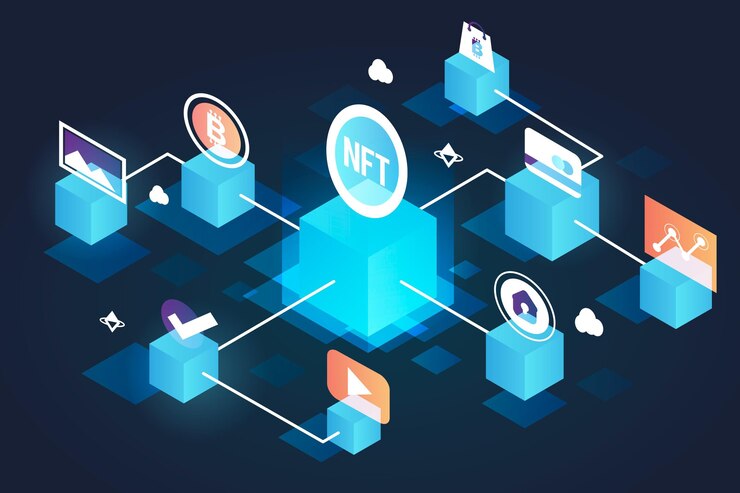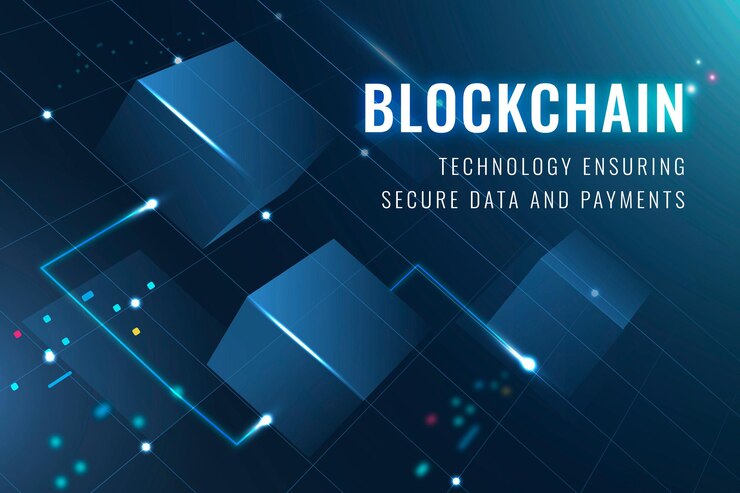Blockchain Innovations for Secure Transactions
In today’s digital age, the exchange of information, goods, and services online has become integral to our daily lives. From banking transactions to online shopping, secure and seamless transactions are crucial to maintaining user trust and ensuring the smooth functioning of the digital economy. Given the growing sophistication of cyber threats, traditional methods of ensuring transaction security are often found lacking. Issues such as data breaches, identity theft, and fraudulent activities underscore the importance of reinforcing current systems. As a result, individuals and businesses are on a perpetual lookout for technologies that can not only secure data but also validate the legitimacy of transactions. Herein lies the relevance of exploring innovative solutions that can add an extra layer of security and integrity. By addressing these needs, we can build a foundation that not only ensures the safe exchange of value but also fosters confidence among users and stakeholders in the digital space.
Understanding Blockchain Technology

At its core, blockchain technology is a decentralized and distributed ledger system designed to record transactions across multiple computers in a secure, transparent, and immutable manner. This ensures that once a transaction is added to the chain, it cannot be altered, providing a high level of data integrity. The implementation of blockchain has gained momentum in various sectors, promising to revolutionize the way we approach data security and trust.
One noteworthy aspect of blockchain is its capacity to eliminate the need for a central authority, such as banks or intermediaries, which are usually required to validate transactions. Platforms like bluechip. io seamlessly incorporate blockchain to offer secure and reliable trading experiences. By leveraging blockchain, these platforms contribute to building a future where transactions are not only secure but also more efficient and transparent. The technology, in essence, brings forth an opportunity for businesses and individuals alike to interact and transact with confidence, knowing that their data is safeguarded against fraud and unauthorized alterations.
How Blockchain Ensures Secure Transactions
The digital landscape is replete with instances of cyber-attacks and frauds, emphasizing the importance of steadfast security measures in online transactions. It is in this context that blockchain technology emerges as a game-changer. Blockchain’s unique design principles fundamentally elevate the security standards of online transactions.
Before delving into the specifics, let’s first unpack the multitude of ways in which blockchain fortifies transaction security:
- Decentralization: The distributed nature of blockchain reduces single points of failure.
- Transparency: Every transaction is visible and traceable, ensuring accountability.
- Immutability: Once recorded, data cannot be altered retroactively.
- Cryptography: Advanced cryptographic techniques protect data from unauthorized access.
- Smart Contracts: These self-executing contracts automate and secure processes without intermediaries.
- Consensus Mechanisms: Blockchain networks validate transactions through consensus, minimizing fraud.
Each of these attributes together constructs a robust fortress around transactional data, ensuring that it remains resistant to malicious activities. The National Institute of Standards and Technology (NIST) has recognized the significance of these features in enhancing cybersecurity frameworks.
By embedding these principles into the fabric of digital transactions, blockchain acts as a bulwark that not only secures data but also restores faith in the digital economy. Embracing blockchain is thus tantamount to ushering in an era of enhanced security and reliability in online transactions.
Cases of Blockchain in Finance and Trade

The transformative impact of blockchain technology extends far beyond cryptocurrency trading, finding applications in finance and trade that revolutionize traditional processes. For instance, cross-border payments, often bogged down by delays and high fees, have become faster and more cost-efficient due to blockchain’s decentralized and transparent nature. Financial institutions and remittance services leverage this technology to facilitate real-time transfers, thereby enhancing customer experience.
Moreover, blockchain also finds substantial utility in supply chain management. By providing a traceable and immutable ledger of transactions, it ensures that each step in the supply chain, from manufacturer to retailer, is recorded and verifiable. This not only helps in mitigating issues of counterfeiting and fraud but also improves accountability and efficiency. Companies in various sectors, including pharmaceuticals, food, and consumer goods, have begun implementing blockchain solutions to ensure the authenticity and safety of their products.
Trade finance, too, is witnessing a paradigm shift with blockchain. By digitizing letters of credit and leveraging smart contracts, blockchain streamlines and secures the processes that are typically time-consuming and error-prone. As these examples illustrate, blockchain technology is indeed reshaping the landscape of finance and trade by introducing enhanced security, transparency, and efficiency.
Addressing Concerns in Blockchain Adoption
While the benefits of blockchain in enhancing transaction security are indisputable, it’s equally essential to acknowledge the hurdles and challenges in its widespread adoption.
By recognizing these challenges, we can strategize and engineer solutions that ensure the technology’s seamless integration into the digital economy.
- Scalability: As blockchain networks grow, there is a pressing need to ensure that they can handle an increasing volume of transactions without compromising on speed or security.
- Interoperability: To foster a cohesive digital ecosystem, different blockchain networks must be capable of interacting and exchanging information seamlessly.
- Regulation and Compliance: Ensuring that blockchain technology aligns with legal frameworks and standards is crucial for its sustainable and ethical application.
Organizations like the MIT Media Lab are actively exploring solutions to these challenges, ensuring that blockchain technology evolves to meet the demands of a dynamic digital landscape. By addressing these issues head-on, we can pave the way for a future where blockchain is not just a theoretical concept but an integral part of our digital infrastructure, guaranteeing secure and reliable transactions.
Forecasting Blockchain’s Impact on Transactions

The ongoing evolution of blockchain technology signals a transformative shift in the realm of secure transactions. As we look towards the future, it’s clear that the integration of blockchain is poised to become increasingly pervasive across different sectors. Financial institutions are expected to deepen their reliance on blockchain to reduce fraud and streamline operations. Meanwhile, the realm of e-commerce will also likely see a surge in blockchain applications, ensuring secure and rapid transactions.
In the context of cryptocurrency trading, the emphasis on secure transactions is especially paramount. With growing interest in digital currencies, users are actively seeking platforms and methodologies that prioritize crypto exchange safety. Blockchain, with its inherent security features, provides the necessary safeguards that potential investors seek.
Additionally, we can anticipate a rise in consumer awareness and demand for blockchain solutions, driven by an increased understanding of the technology’s potential to ensure transactional integrity. As the landscape continues to evolve, blockchain’s role in securing digital transactions is bound to expand and solidify.
Reflecting on Blockchain’s Potential in Security
In assessing the landscape of secure transactions, blockchain emerges as a robust and transformative force. Its promise of decentralization, transparency, and immutability aligns seamlessly with the prerequisites of a secure digital ecosystem. By addressing challenges and continuously evolving, blockchain can redefine how we perceive and engage in digital transactions. In a world where data security is paramount, blockchain stands as a beacon of reliability and innovation.

















